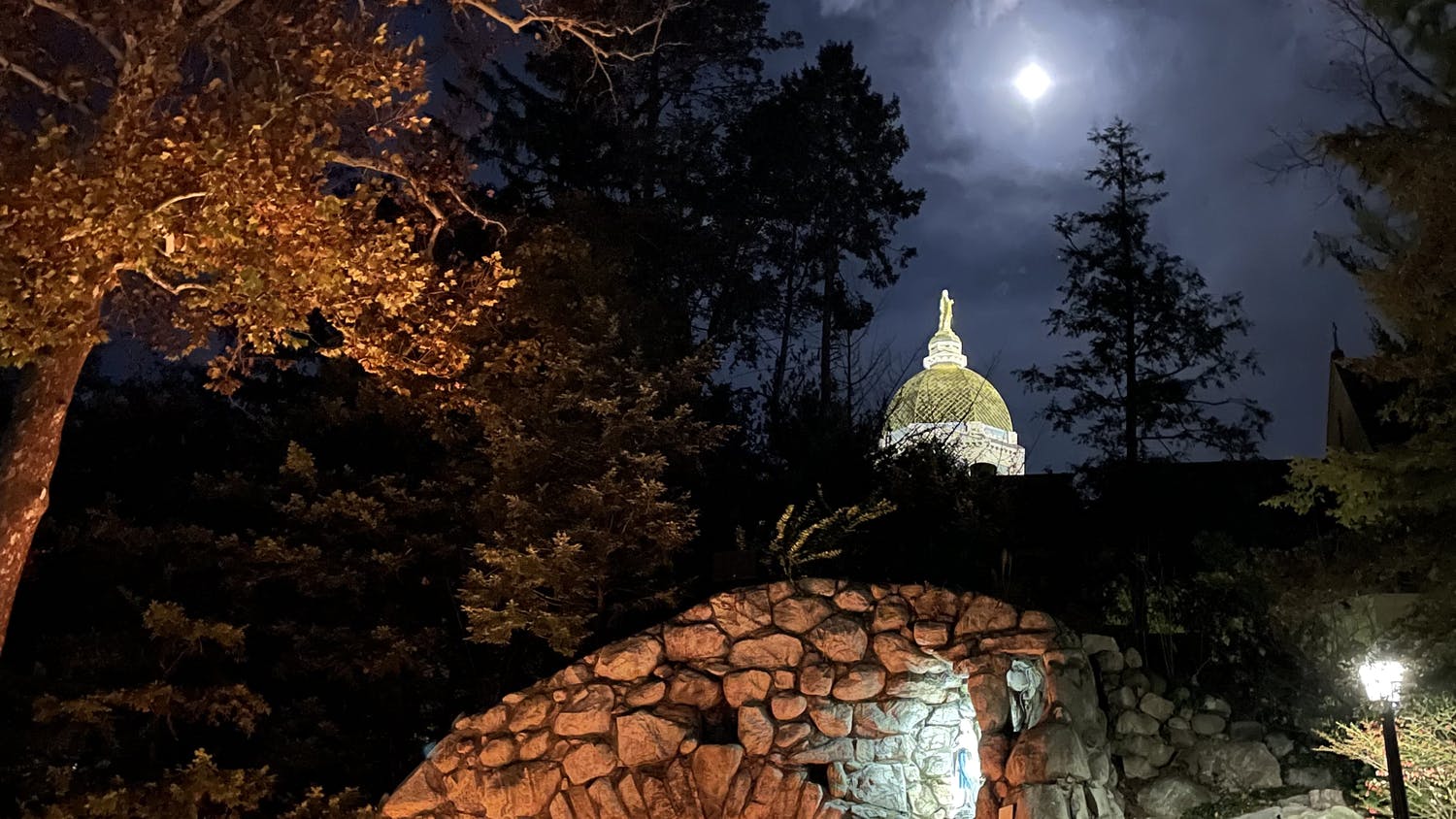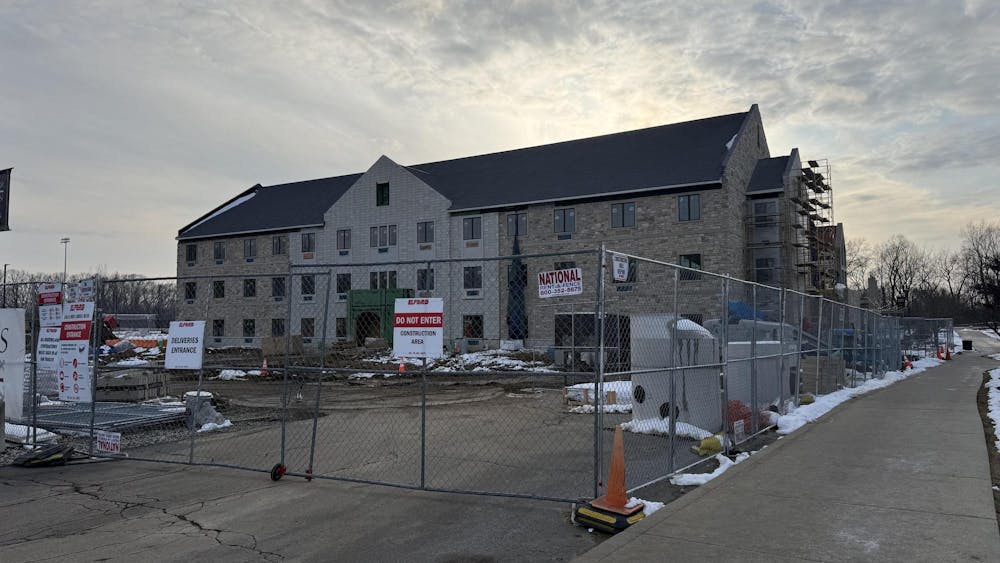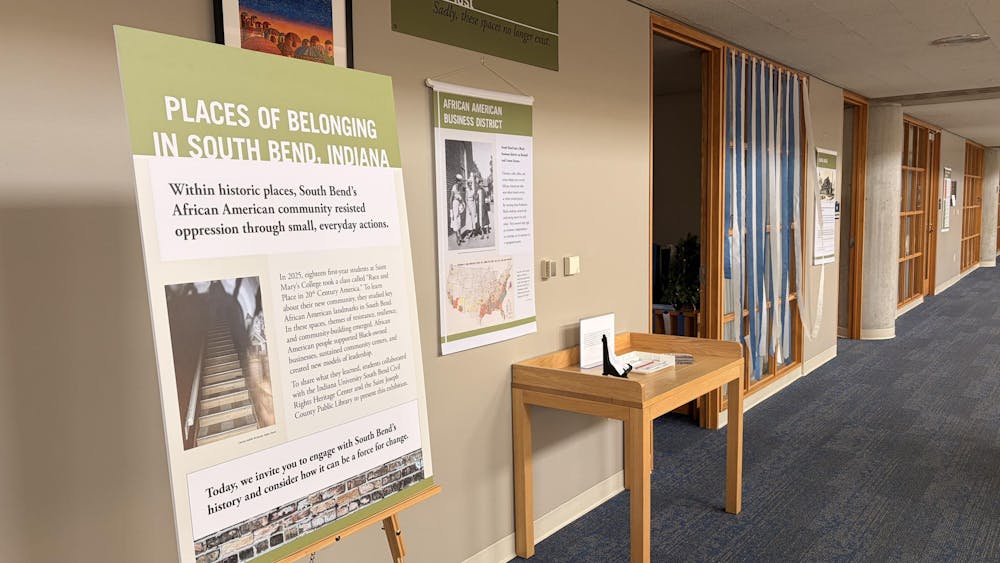
Five key players in the push for Church reform will continue the global conversation on the clergy sexual abuse crisis in a panel Wednesday evening.
The panel, “The Church Crisis: Where Are We Now?,” will be held Wednesday night at 7 p.m. in the DeBartolo Performing Arts Center’s Leighton Concert Hall.
A keynote event for the 2019 Notre Dame Forum, “‘Rebuild My Church:’ Crisis and Response,” the panel will feature Archbishop of Baltimore William Lori; Kathleen McChesney, former executive assistant director at the FBI; Juan Carlos Cruz, an advocate for survivors of clergy abuse; and Peter Steinfels, former editor at Commonweal and former columnist for the New York Times. John Allen, editor of online Catholic newspaper Crux and Vatican reporter, will moderate.
The background
Wednesday's panel takes place over one year after the Pennsylvania Grand Jury Report brought clergy sexual abuse allegations to the forefront of Catholic consciousness. Since the report, the Vatican has taken a more aggressive stance toward addressing the crisis — on May 9, Pope Francis announced a new lawrequiring Church leaders to report all allegations of sexual abuse. The policy also provided stipulations for how to investigate them.
This legislation joins the 2002 Charter for the Protection of Children and Young People, which established a “zero-tolerance” stance toward abuse — though the policy applies only to priests and deacons. Both Lori and McChesney helped to develop the charter.
In conversations with The Observer, Wednesday’s guests shared their views of where the Church stands in addressing the crisis, as well as their hopes for the evening’s discussion.
Addressing the crisis
Allen, who has spent decades reporting on the Vatican, called the Church’s handling of the crisis “a mixed bag.”
“I think we have to say out loud — and we should not be afraid to say — that there has been tremendous progress made in terms of the understanding of this pathology [of clergy abuse] and also in terms of the accountability we impose for it,” he said.
But despite legislation like the Dallas Charter and the May 9 law, few clergy who hide or ignore cases of abuse are held responsible, Allen said.
“A bishop who commits sexual abuse is going to be gone tomorrow,” he said. “A bishop who covers it up? Nah.”
It is these coverups that keep abuse and other acts of corruption alive yet hidden, president of web database Bishop Accountability Terry McKiernan, who will be attending the panel, said. McKiernan warned the Catholic community to be skeptical of the Church’s progress.
“Since 2002, the Catholic Church in the United States — both the dioceses and also to some extent the religious orders — have chosen a PR strategy that basically put forward the message that we’re on a learning curve, we’ve done a lot of work and we’re now a very safe place for children,” he said.
Cruz said the culture of coverups that runs rampant in the Church makes grassroots reform from Catholic communities especially necessary.
“Right now, it’s the time of the survivors,” he said. “It’s the time of those people who want to build, not those people who want to keep destroying and feeding this culture of abuse, and coverup that has no room in the Church.”
Steinfels, who wrote a critique of the Pennsylvania Grand Jury Report, said there also ought to be greater accountability in the government’s investigation of the crisis. He added that a key component in addressing clergy abuse is understanding where it comes from.
“I would like to raise the question of, ‘Going forward, how can we equip people and the Church to have a better understanding of the history of this whole scandal?’” Steinfels said. “And here’s where I think an institution like Notre Dame can have a key role.”
Rebuilding public trust in the Church is another important tenant of reform, Lori said — an obstacle clergy and laity must work together to overcome.
“I think that the ultimate goal of the conversation is to offer healing to victim-survivors, to children, to restore people’s trust, to help people who are struggling in their faith,” he said. “And this cannot be done unless we pray about it, unless we work toward it. But we also have to dialogue.”
No matter where the conversation goes, honesty will be the qualifier for a successful discussion, Allen said.
“If there is anything we have learned from the abuse scandals, it is that pretending a problem isn’t there doesn’t make it go away,” he said.
A controversial archbishop
However, some have claimed the archbishop has been doing just that.
Lori has been criticized for his numerous attempts to block Church transparency efforts — just this summer, he came under fire for his controversial investigation of Michael Bransfield, the former bishop of Wheeling-Charleston, West Virginia.
Notre Dame has not publicly acknowledged any of these criticisms — promotional materials for Wednesday night’s panel stated only that he investigated “allegations of sexual harassment and financial impropriety by the former bishop of the Catholic Diocese of Wheeling-Charleston.” But they were aware of them, vice president for public affairs and communications Paul Browne confirmed in an email to The Observer.
“Archbishop Lori was invited to be part of the Forum event because of his insight, experience and tenacity in addressing the sex abuse crisis in the Church,” Browne said in the email. “We are certainly aware of the criticisms that have been leveled, but the purpose of the event is to talk about where we are and where we need to go, and we believe each of the panelists can speak about both what the Church has done well and its mistakes in handling the crisis.”
Allen, who was the first to recommend Lori for the panel, said controversies surrounding the archbishop should not distract from what he brings as a Church leader and longtime advocate of reform.
“I think [Lori] is a smart and deeply responsible guy,” he said. “And, does that mean he’s handled every issue that has come before him perfectly? No.”
In a system as broken as the Catholic Church, critics should not be so quick to single Lori out, Allen added.
“Give me a cleric who doesn’t have a controversial background,” he said. “Name one — I can’t.”
Even so, Lori has long been held up as an example for clergy abuse response and prevention efforts. Just this year, the Archdiocese of Baltimore also established a new system for reporting complaints against clergy.
The question remains of what role Lori will play on the panel, and how he will respond to questions about his past.
“A bishop has an archdiocese to run and has a message to convey, and it’s just not always or even often the case that we get thinking outside the box from officeholders in general,” McKiernan said.
Still, skeptics should withhold their judgement until the panel, he added.
“That kind of a possibility that Archbishop Lori might play it safe, I think we need to balance it with the really amazing opportunity that we have here,” McKiernan said. “If he is willing to answer to ideas for change, is willing to really engage with hard questions about his time in Bridgeport, even his work in the Bransfield investigation, we could get a livelier evening, and an evening that might actually yield commitment for real change.”
McChesney said critics of Lori should see his seat on the panel as a chance for dialogue.
“[The panel] gives the audience an opportunity to ask [Lori] questions about things that they are concerned about. He is willing to come to a forum and discuss those things insofar as he can,” she said. “I think that is excellent. I think you want to hear from people that you may agree with, and people you may not agree with.”
Lori said his past should be left out — or at the very least, be left at the periphery — of Wednesday night’s discussion.
“This event is not about me,” Lori said. “I’m not the focus of this. This is a conversation about the Church, where the Church is now and how we can move forward. And so being the only cleric on this panel should not mean that I’m a target, it should illustrate how we can have a conversation together as one Church made up of clergy, laity and religious.”
The archbishop said he is not one to turn away questions, however, pointing to his embrace of public discussion in his home community.
“I’ve done 18 listening sessions around the archdiocese,” he said. “That means going to 18 different locations and spending, basically, three hours with an open mic, alright? Understand, I’ve been to the rodeo before.”
Allen said those who disagree with Lori’s place on the panel should remember the University is hosting the forum from a place of goodwill.
“It is enormously to the credit of Fr. Jenkins and the University that they are investing considerable time and treasure in something that quite honestly, isn’t necessarily the University’s concern,” he said. “Notre Dame, for the most part, has not been one of the epicenters of the sexual abuse crisis. … [The University] knew full well it had the potential to invite critical attention, but they decided to do it anyway.”
Notre Dame Forum panelists share expectations for discussion, comment on Archbishop Lori’s controversial history
Joseph Han |
Joseph Han | The Observer









